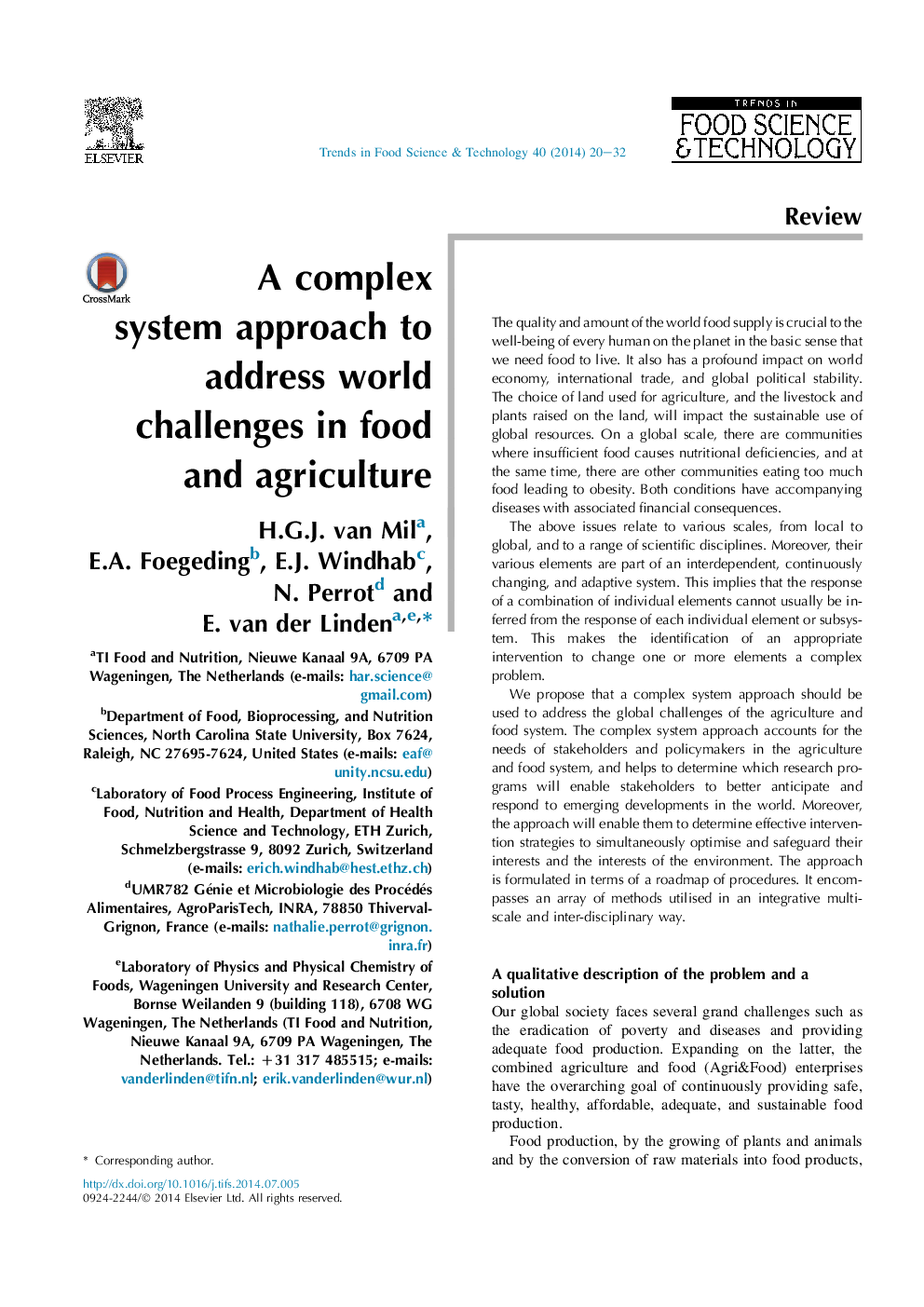| Article ID | Journal | Published Year | Pages | File Type |
|---|---|---|---|---|
| 2098626 | Trends in Food Science & Technology | 2014 | 13 Pages |
•Challenges within Food and Agriculture encompass a wide range of different spatial and temporal scales.•Challenges within Food and Agriculture are researched within a variety of distinct scientific disciplines.•Challenges that involve multi-scale and multi-disciplinary interdependencies are classified as complex.•A systematic pluralistic pragmatic approach is proposed for intervention strategies to address the complex challenges.
The quality and amount of the world food supply is crucial to the well-being of every human on the planet in the basic sense that we need food to live. It also has a profound impact on world economy, international trade, and global political stability. The choice of land used for agriculture, and the livestock and plants raised on the land, will impact the sustainable use of global resources. On a global scale, there are communities where insufficient food causes nutritional deficiencies, and at the same time, there are other communities eating too much food leading to obesity. Both conditions have accompanying diseases with associated financial consequences.The above issues relate to various scales, from local to global, and to a range of scientific disciplines. Moreover, their various elements are part of an interdependent, continuously changing, and adaptive system. This implies that the response of a combination of individual elements cannot usually be inferred from the response of each individual element or subsystem. This makes the identification of an appropriate intervention to change one or more elements a complex problem.We propose that a complex system approach should be used to address the global challenges of the agriculture and food system. The complex system approach accounts for the needs of stakeholders and policymakers in the agriculture and food system, and helps to determine which research programs will enable stakeholders to better anticipate and respond to emerging developments in the world. Moreover, the approach will enable them to determine effective intervention strategies to simultaneously optimise and safeguard their interests and the interests of the environment. The approach is formulated in terms of a roadmap of procedures. It encompasses an array of methods utilised in an integrative multi-scale and inter-disciplinary way.
